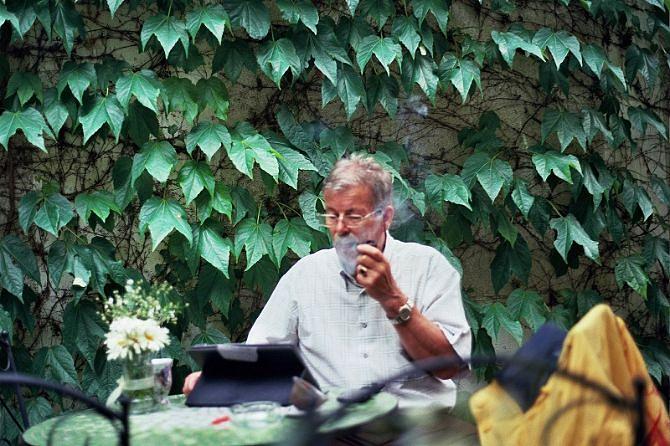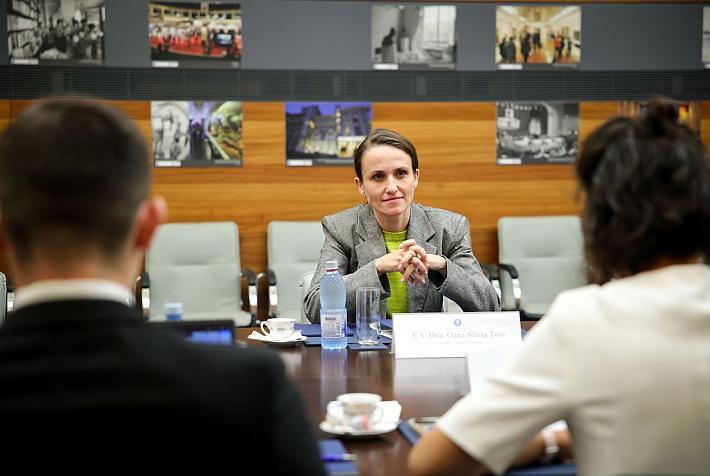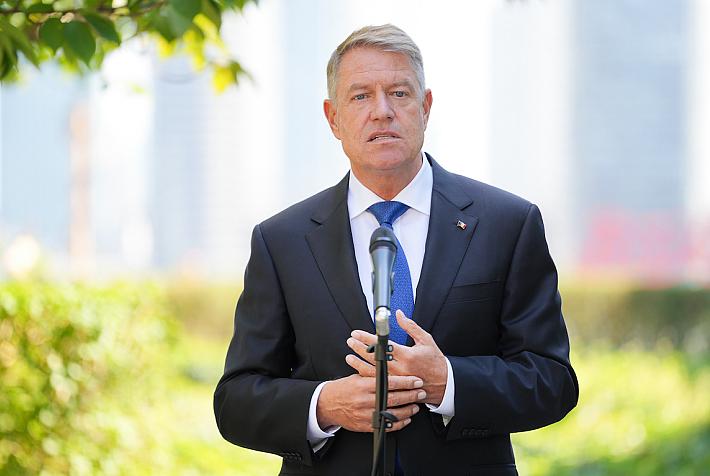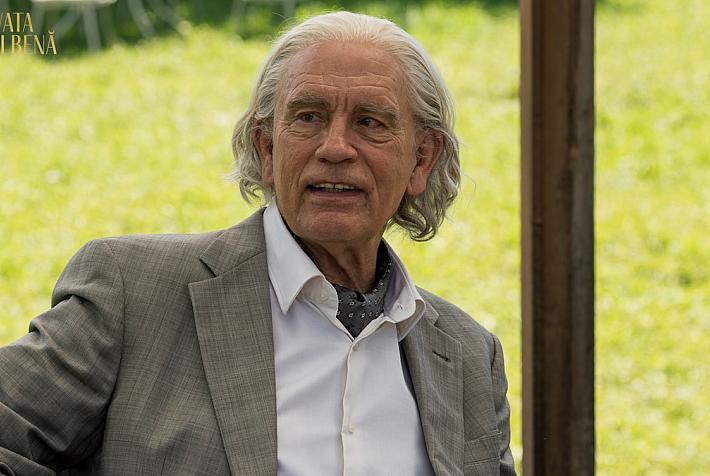Globalization: a customized tutorial with Juerg Hasler

A Switzerland-born cosmopolite expressing his thoughts in a Bucharest cafe on a confusingly tropical June day.
Google “how to smoke pipe” and you’ll get about 50 million results. One “Beginner’s guide to smoking pipe” tells you for example that you have to take it easy when smoking, and do it slow and steady, cause “this is a marathon, not a 5- yard flash.”
Juerg Hasler didn’t go online to learn how to smoke pipe. He went to the United States with a student scholarship about 50 years ago, spent there the best year of his life, learned how to smoke pipe and hasn’t stopped ever since.
Now he’s alone in a cafe with a beautiful garden in Bucharest, thumbing through a German magazine, drinking fruit tea and, of course, smoking pipe.The checkered shirt and a pair of jeans are hints that you’re dealing with a guy who is not young anymore, but who hasn’t given up the fight. There is also a yellow raincoat on his chair; it rained so much rain in the last month.
“I am a cosmopolite. I feel at home wherever my friends are,” he says.
Born in Switzerland, but having lived on three continents, Juerg believes that the best thing one can do is to live at least one year abroad. But why bother and go live in another country? Can’t travelling do the trick?
“Travelling is not special anymore,” he says. “When I was a kid and travelled with my parents to Italy, pizza was still something Italian, that you could find in Italy. Now go to any restaurant in Bucharest and you’ll find 200 sorts of pizzas.”
“Go to Vienna, Munich or Bangkok. You’ll see McDonald's, Benetton United everywhere. This is the effect of globalization: uniformization. You need now much more time now to really discover a country.”
But globalization has also made it easier to travel or to do business. And partly it’s also the reason why Juerg has been living in Romania in the last 14 years. He helped set up a polystyrene manufacturing factory in Ploiesti.
“A little adventure, that’s what I need, but within reason. Togo or Mexico? Not anymore.”
“Romania is Europe’s last adventure,” he adds. But it’s also safe and close to any European city. “In two hours I’m in Switzerland, drinking my coffee.”
And the country has hugely changed. When he first arrived in Bucharest, 14 years ago, there were 2,000 plastic bottles between airport and the city, he says. “Now it’s actually clean.”
When he moves to a new country, he wants to know the people, the history. “I want to understand where I work, where I learn.” He looks at the watch and says, ”Actually at nine I’m going to a party with some Romanian architects, good friends.”
That’s one tricky thing about moving from one country to another: one loses friends. “A wise person said once that every separation is a little bit like death.”
“Of course you lose something when you move away. But then I go back to Switzerland and I meet my colleagues, and out of 30 students, only 2 moved away- the rest stayed in the country. When I tell these about Romania, they don’t understand a thing. They all wear blinds.”
“No wonder far-right parties gained ground in the European Parliament elections. People stay at home and don’t understand much.”
He has advised his daughter living in Switzerland who had studied medicine to go work in conflict zones. It’s the best experience for a young doctor, he adds. “You’ll never get in Switzerland the cases you’d get there.”
As an expat, you are expected to be more tolerant. “For me it’s not important if you’re catholic, or orthodox, or whatever”
Then he makes a break and adds: “I have also dealt with religion.” I ask him if he has been a pastor and he answers. “I have never been and I’ll never be one. Never, never, never. But I wanted to understand why certain people have a certain religion, what hides behind. Why are the orthodox separated from the catholics, for example.” So, what’s the reason, I ask him.
“Power.”
“Why are the Catholics separated from the Protestants in Switzerland? Power. Macht. The Sunnis fight against the Shias in Iraq, same religious clash in Northern-Ireland.”
“In the village where I come from in Switzerland, there was a protestant church. Then the globalization came and both the catholics and the protestants started using the same church. It was completely meaningless to build another church, when there are less and less people going to church. And now the kids from these two religious groups make together a musical.”
By Diana Mesesan, features writer, diana@romania-insider.com











